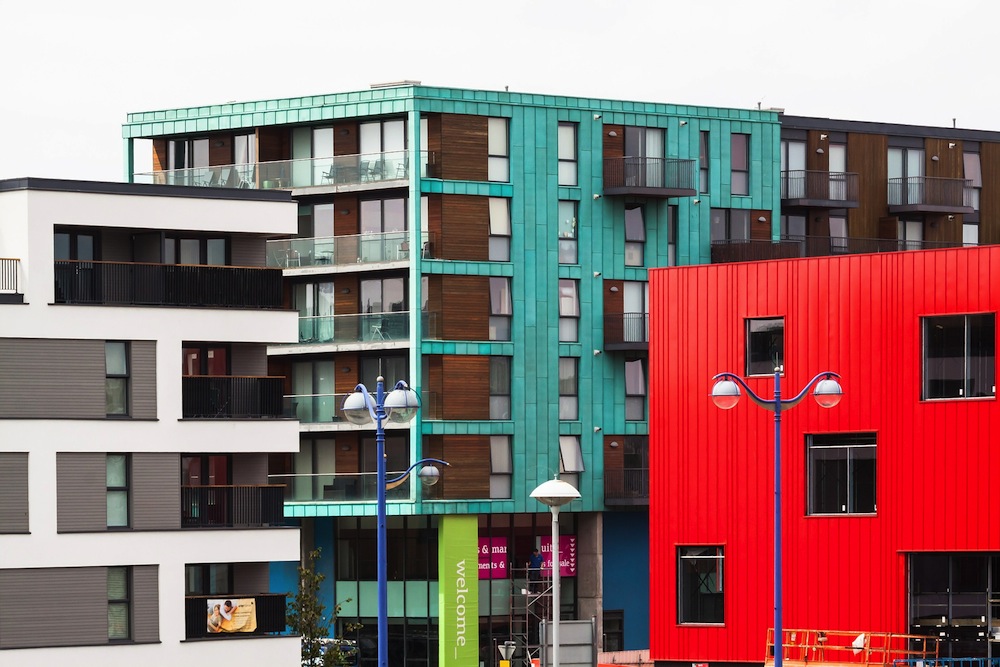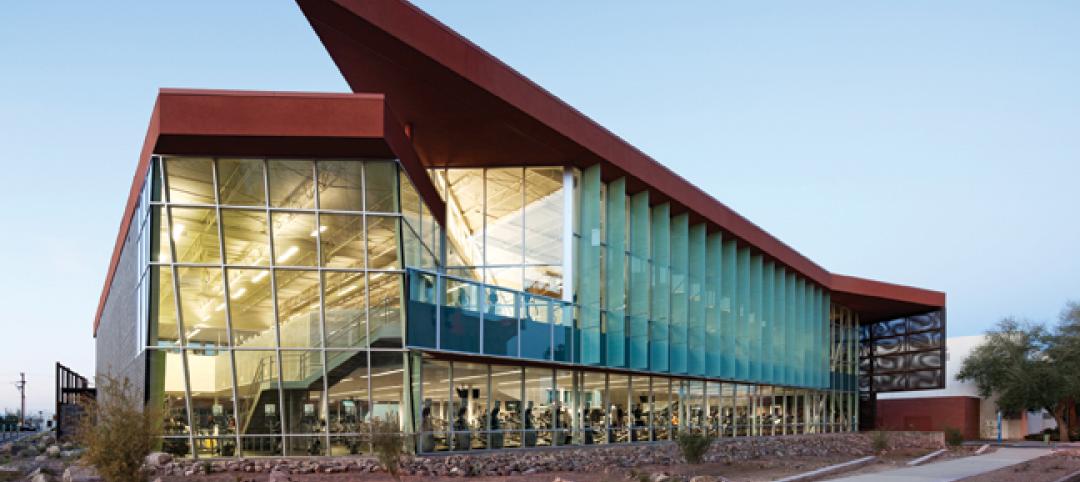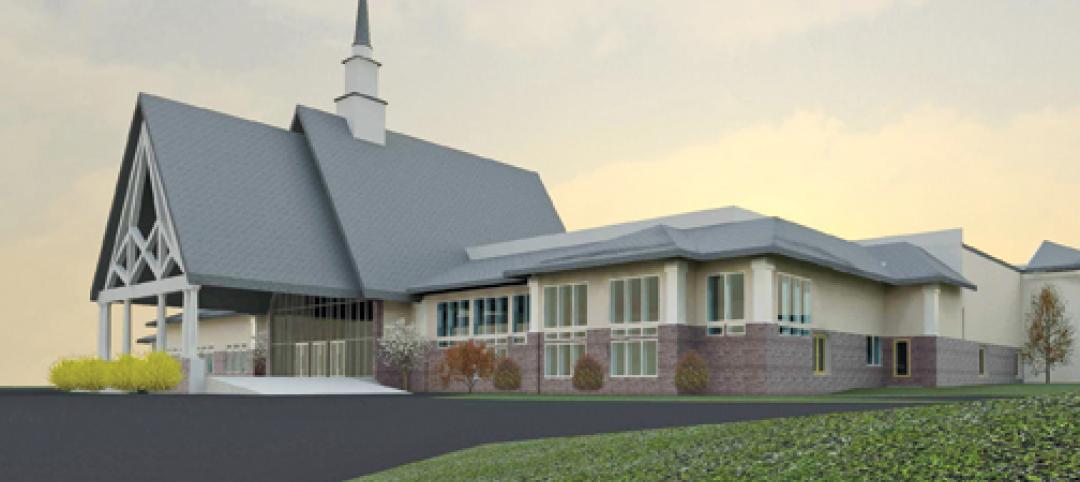The National Council of Architectural Registration Boards (NCARB) has accepted proposals from over a dozen architecture schools to implement an integrated path to licensure within academic programs accredited by the National Architectural Accrediting Board (NAAB).
This initiative allow students enrolled in an NCARB-accepted path to complete the requirements for architectural licensure at the time of graduation. The NCARB Integrated Path initiative invites programs accredited by the NAAB to propose approaches that would result in completing the requirements of the Intern Development Program (IDP) and the opportunity to take each division of the Architect Registration Examination (ARE) before graduation. Passing all ARE divisions prior to graduation is not required.
In its inaugural effort, the NCARB Integrated Path initiative has solicited statements of interest from all schools with NAAB-accredited programs and then invited all with accredited programs to submit proposals, which were received this past June. The review of these proposals was conducted by the NCARB Licensure Task Force (LTF), composed of interns/recently licensed architects, state licensing board members and executives, academic deans and instructors, and non-architect public members, as well as leaders representing the American Institute of Architects (AIA), the American Institute of Architecture Students (AIAS), the Association of Collegiate Schools of Architecture (ACSA), and the National Architectural Accrediting Board (NAAB).
NCARB will respond to each school with feedback as to how their proposal is or could become acceptable before releasing the names of the accepted programs. All programs that submitted proposals will be coached as to next steps including modifications necessary to move forward toward implementation. NCARB will also engage its state licensing board members regarding regulatory changes to allow access to the ARE prior to graduation.
After providing further feedback to the proposing schools, NCARB will release the names of the initial group of accepted programs. Programs needing more development will be encouraged to resubmit proposals utilizing the feedback from the Task Force. A new RFP for the second round of participation will launch in early 2016 and will be repeated on an annual basis, to be managed by a new Integrated Path Evaluation Committee appointed by the NCARB President Ward and include diverse geographic, age, demographic, and collateral perspectives.
Related Stories
| Nov 9, 2010
Designing a library? Don’t focus on books
How do you design a library when print books are no longer its core business? Turn them into massive study halls. That’s what designers did at the University of Amsterdam, where they transformed the existing 27,000-sf library into a study center—without any visible books. About 2,000 students visit the facility daily and encounter workspaces instead of stacks.
| Nov 9, 2010
Turner Construction report: Green buildings still on the agenda
Green buildings continue to be on the agenda for real estate owners, developers, and corporate owner-occupants, according to the Turner 2010 Green Building Market Barometer. Key findings: Almost 90% of respondents said it was extremely or very likely they would incorporate energy-efficiency improvements in their new construction or renovation project, and 60% expected to incorporate improvements to water efficiency, indoor environmental quality, and green materials.
| Nov 5, 2010
New Millennium’s Gary Heasley on BIM, LEED, and the nonresidential market
Gary Heasley, president of New Millennium Building Systems, Fort Wayne, Ind., and EVP of its parent company, Steel Dynamics, Inc., tells BD+C’s Robert Cassidy about the Steel Joist Manufacturer’s westward expansion, its push to create BIM tools for its products, LEED, and the outlook for the nonresidential construction market.
| Nov 3, 2010
First of three green labs opens at Iowa State University
Designed by ZGF Architects, in association with OPN Architects, the Biorenewable Research Laboratory on the Ames campus of Iowa State University is the first of three projects completed as part of the school’s Biorenewables Complex. The 71,800-sf LEED Gold project is one of three wings that will make up the 210,000-sf complex.
| Nov 3, 2010
Park’s green education center a lesson in sustainability
The new Cantigny Outdoor Education Center, located within the 500-acre Cantigny Park in Wheaton, Ill., earned LEED Silver. Designed by DLA Architects, the 3,100-sf multipurpose center will serve patrons of the park’s golf courses, museums, and display garden, one of the largest such gardens in the Midwest.
| Nov 3, 2010
Public works complex gets eco-friendly addition
The renovation and expansion of the public works operations facility in Wilmette, Ill., including a 5,000-sf addition that houses administrative and engineering offices, locker rooms, and a lunch room/meeting room, is seeking LEED Gold certification.
| Nov 3, 2010
Sailing center sets course for energy efficiency, sustainability
The Milwaukee (Wis.) Community Sailing Center’s new facility on Lake Michigan counts a geothermal heating and cooling system among its sustainable features. The facility was designed for the nonprofit instructional sailing organization with energy efficiency and low operating costs in mind.
| Nov 3, 2010
Seattle University’s expanded library trying for LEED Gold
Pfeiffer Partners Architects, in collaboration with Mithun Architects, programmed, planned, and designed the $55 million renovation and expansion of Lemieux Library and McGoldrick Learning Commons at Seattle University. The LEED-Gold-designed facility’s green features include daylighting, sustainable and recycled materials, and a rain garden.
| Nov 3, 2010
Recreation center targets student health, earns LEED Platinum
Not only is the student recreation center at the University of Arizona, Tucson, the hub of student life but its new 54,000-sf addition is also super-green, having recently attained LEED Platinum certification.
| Nov 3, 2010
New church in Connecticut will serve a growing congregation
Tocci Building Companies will start digging next June for the Black Rock Congregational Church in Fairfield, Conn. Designed by Wiles Architects, the 103,000-sf multiuse facility will feature a 900-person worship center with tiered stadium seating, a children’s worship center, a chapel, an auditorium, a gymnasium, educational space, administrative offices, commercial kitchen, and a welcome center with library and lounge.
















